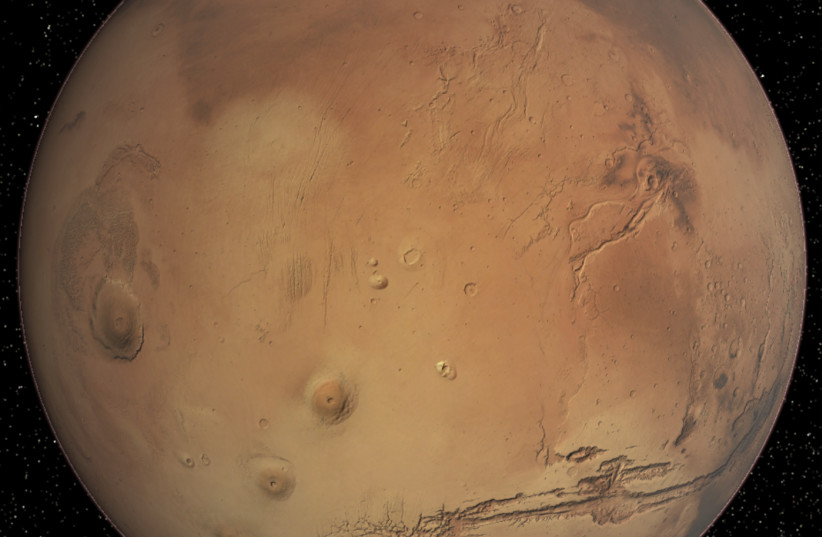A new peer-reviewed study published in PLOS ONE on Wednesday identified several strategies for treating infertile Martian soil so that crops can be grown on Mars and found that alfalfa plants can be used as fertilizer to grow turnips, lettuce and radish.
Furthermore, the study demonstrated that the water-based cyanobacterium Synechococcus sp. PCC 7002 can be used to remove salt from briny water and this desalination process can be augmented by filtration through basalt-type volcanic rocks.
The researchers found that it is possible to grow food crops on Mars using basaltic regolith martian soil treated with desalinated water and alfalfa biomass.
In the study, turnip, radish lettuce and alfalfa seeds were planted in pots containing basaltic regolith soil or garden soil and the plants were grown in a controlled growth chamber with soft light and watered once per week. After the first week, the height of the shoots and the length of the roots were measured. Next, plants were dried in order to measure biomass. The alfalfa was grown in the basaltic regolith soil, dried and then crushed into powder.
An analysis of the basaltic regolith soil found low levels of nitrate, ammonium phosphorous, potassium, sulfur, zinc, manganese, boron, calcium, magnesium, iron and copper compared to the garden soil. The basaltic regolith soil was also poor in organic matter content, cation exchange capacity and alkaline compared to the garden soil.

Additional findings from the analysis
“Our findings indicate that it is possible to grow food crops with alfalfa treated basaltic regolith martian soil as a substratum watered with biodesalinated water.”
Study
The researchers also found that the growth of turnip plants in the basaltic regolith soil was unhealthy compared to those that were grown in the garden soil.
After the basaltic regolith soil was treated with the alfalfa-based fertilizer, a significant improvement was in growth was observed.
“Our findings indicate that it is possible to grow food crops with alfalfa treated basaltic regolith martian soil as a substratum watered with biodesalinated water,” the researchers said.
